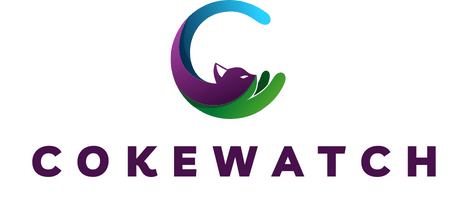How Can Mobile Health Apps Promote Wellness in Professional Equestrians?

In today’s digital age, mobile health applications – also known as mHealth apps – have revolutionized the way we track and manage our health. They offer a convenient, efficient, and personalized approach to health and wellness management. But, have you ever considered how these apps can benefit the professional equestrian? Equestrian athletes, like all sports professionals, need to maintain a prime physical and mental condition to perform at their best. This article delves into how mobile health apps can enhance wellness in professional equestrians.
Harnessing the Power of Data
At the heart of every mHealth app lies an abundance of data. These apps can track a variety of health parameters, from simple metrics such as heart rate and sleep quality to more complex ones like mental health indicators. For professional equestrians, this vast pool of data can be a valuable tool in improving their performance and overall health.
Have you seen this : What’s the Best Pre-Competition Meal for Competitive Weight Lifters?
Health apps can help equestrians monitor their heart rate during riding sessions, for example, ensuring that the athlete is not overworking themselves. They can also track sleep patterns, vital in ensuring the athletes get the rest they need. Data from these apps can be analyzed over time, helping riders and their coaches to understand the athlete’s health better and make informed decisions about their training regimes.
MHealth and Mental Wellness
While physical health is critical for any athlete, mental wellness is equally important. Stress, anxiety, and other mental health issues can significantly impact an athlete’s performance. This is where mobile health apps can make a significant difference.
This might interest you : What Are the Techniques for Overcoming Fear of Injury Return in Soccer Players?
Many mHealth apps offer features that can help manage stress levels and improve mental health. Some apps can track your mood and provide feedback, while others offer guided mindfulness and meditation exercises to help manage stress and anxiety. For professional equestrians, these features can be particularly beneficial. The high-stress environment of competitive equestrian events can often lead to anxiety, which can, in turn, affect an athlete’s performance. By using mHealth apps, equestrians can monitor their mental wellness and take steps to manage stress effectively.
Equine Therapy and Wellness
Equine therapy, which involves interactions with horses, has been seen to benefit people’s mental health. Horses are highly sensitive animals, and interacting with them can help people understand and regulate their emotions better. This form of therapy can be incredibly beneficial for professional equestrians who spend much of their time working with horses.
Mobile health apps can complement equine therapy by tracking therapy sessions and providing feedback. For example, an app can record the time spent in therapy, the activities undertaken, the client’s mood before and after the session, etc. This data can be analyzed to understand the effectiveness of the therapy and make necessary modifications.
Training and Performance Enhancement
Finally, mobile health apps can assist professional equestrians in enhancing their training and performance. Many apps offer personalized training programs based on the user’s health data. For equestrians, this could mean a training program that considers their physical and mental health, their performance goals, and the unique demands of their sport.
Furthermore, some apps can provide real-time feedback during training sessions. This function can be very beneficial for equestrians, as it allows them to adjust their training in real time based on the feedback they receive. This can lead to more efficient training sessions and, in the long run, improved performance.
The Future of Wellness in Equestrianism
As technology continues to advance, the benefits of mobile health apps for professional equestrians are likely to increase. Already, apps are becoming more sophisticated, offering more features, and providing more personalized feedback. As this trend continues, it’s easy to imagine a future where every equestrian has a health app tailored specifically to their needs.
Mobile health apps have the potential to revolutionize wellness in equestrianism, providing athletes with the tools they need to manage their health and improve their performance. While the use of these apps is still relatively new in the equestrian world, it’s clear that they hold great promise for the future.
The Role of Mobile Health Apps in Equine-Assisted Therapy
Equine-assisted therapy has become increasingly recognized for its benefits on mental health. This unique form of therapy involves interactions with horses, which are incredibly sensitive animals, helping individuals better understand and regulate their emotions. For professional equestrians, who spend most of their time with these magnificent animals, the benefits can be particularly profound.
The emergence of mobile health apps has the potential to significantly enhance the effectiveness of equine-assisted therapy. These apps can be used to meticulously track therapy sessions, recording crucial data such as the duration of the session, the activities undertaken, and even the client’s mood before and after the therapy. This data can then be analyzed to provide invaluable insights into the effectiveness of the therapy, helping to make informed decisions about future sessions.
For instance, if a professional equestrian reports feeling more relaxed and focused after a therapy session, this is a clear indication that the therapy is having a positive impact on their mental health. Conversely, if they report feeling more anxious or stressed, it may suggest that adjustments need to be made to the therapy.
Mobile health apps also offer the potential to extend the benefits of the therapy beyond the session itself. Many apps provide features such as mood tracking and guided mindfulness exercises, which can help equestrians maintain their mental wellbeing in between therapy sessions. This holistic approach to health care, combining equine-assisted therapy with app technology, can support equestrians in managing stress and improving their overall mental health.
Conclusion: The Impact of MHealth Apps on Equestrian Performance
The advent of mobile health apps has undoubtedly opened up new possibilities for professional equestrians. By collecting and analyzing vast amounts of health data, these apps provide a personalized and efficient approach to managing both physical and mental health. This, in turn, can have a profound impact on equestrians’ performance.
While physical health is fundamental to any sport, the mental aspect can often be overlooked. However, as any seasoned equestrian will attest, mental strength and resilience are just as vital in the world of equestrianism. Therefore, the ability to track and manage mental health through mHealth apps represents a significant advancement in the sport.
These apps also offer the potential to enhance equine-assisted therapy, a form of therapy that has been shown to have significant benefits on mental health. By recording and analyzing data from therapy sessions, mHealth apps can help optimize the therapy, ensuring that it is as effective as possible.
Looking to the future, it’s clear that mobile health apps will play an ever-increasing role in equestrianism. As technology continues to advance and app development becomes more sophisticated, we can anticipate a future in which every professional equestrian has a tailored health app at their disposal, aiding them in achieving optimal performance and wellness.
Finally, it’s worth noting that while this article has focused on professional equestrians, the benefits of mHealth apps are by no means limited to this group. Anyone who enjoys riding or working with horses can benefit from using these apps, as can those involved in other sports or physical activities. As such, the impact of mobile health apps on our overall health and wellbeing should not be underestimated.
